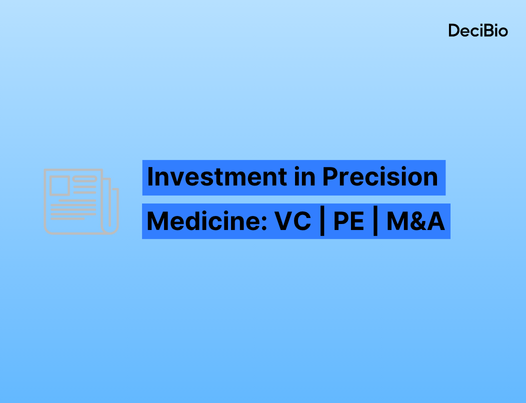Highlights & Summary
Q3 2024 saw various developments in the digital health and informatics space.
The Centers for Medicare & Medicaid Services (CMS) proposed expanding coverage for digital health tools in its 2025 physician fee schedule, while the European Union finalized the AI Act to regulate AI use in medical devices and diagnostics.
In the realm of AI and imaging, notable advancements include Abbott's collaboration with iCardio.ai to enhance cardiac imaging, Huawei's launch of an AI diagnostic solution, and GE HealthCare's acquisition of Intelligent Ultrasound's AI business.
Meanwhile, in disease management and digital therapeutics, Apple introduced health monitoring features in its new devices, Glytec partnered with Roche to improve diabetes management in hospitals, and Amazon Health integrated Talkspace to enhance mental health service accessibility.
In informatics and healthcare IT solutions, Abridge collaborated with Epic and Mayo Clinic to create AI-driven nursing documentation tools, Commure acquired Augmedix to improve physician productivity with AI scribing, and Microsoft teamed up with health systems to advance AI in medical imaging.
Finally, in women’s health and femtech, Flo Health raised over $200 million to expand its women's health app, achieving unicorn status, while the NIH initiated a competition to develop innovative, non-invasive diagnostic technologies for endometriosis.
Overarching Industry Updates
1 | Updated digital health payments incorporated in CMS 2025 PFS draft rule
2 | EU publishes regulation governing use of AI in medical devices and IVDs
AI / Imaging
1 | Abbott and iCardio.ai collaborate on artificial intelligence algorithms for imaging applications
2 | Huawei launches the medical technology digitalization solution to accelerate intelligence in healthcare
Disease Management / Digital Therapeutics
1 | Apple receives FDA clearance for sleep apnea and hearing aid technology
2 | Glytec expands partnership with Roche for hospital diabetes management
3 | Talkspace to be added to Amazon Health Services
4 | Abbott's Lingo glucose monitoring system now available in the U.S.
Informatics / Healthcare IT Solutions
1 | Abridge partners with Epic and Mayo Clinic to create a genAI tool to streamline nursing workflows
2 | Augmedix acquired by Commure to create software suite aiming to boost physician productivity
Women’s Health / Femtech
1 | Flo Health secures >$200M in funding for their digital consumer women’s health app
Overarching Industry Updates
1 | Updated digital health payments incorporated in CMS 2025 PFS draft rule
The Centers for Medicare & Medicaid Services (CMS) has released its proposed 2025 physician fee schedule, which includes recommendations for expanding coverage of digital health tools, such as digital therapeutics and telehealth services. Notably, CMS proposes paying for digital mental health devices integrated into behavioral health treatment plans and creating new codes for mental health providers. CMS also suggests adding caregiver training and opioid use disorder treatment to the telehealth services list.
2 | EU publishes regulation governing use of AI in medical devices and IVDs
The European Commission has finalized the Artificial Intelligence Act (AIA), establishing a legal framework for establishing reliable AI in medical devices, in vitro diagnostics (IVDs), and other products. The Act sets harmonized rules for AI system deployment. It includes risk management, data governance, and transparency standards for high-risk AI devices like Class IIa or higher medical devices. Additionally, manufacturers must ensure AI literacy for staff and create systems that offer clear, interpretable outputs.
AI / Imaging
1 | Abbott and iCardio.ai collaborate on artificial intelligence algorithms for imaging applications
iCardio.ai, a Los Angeles-based company specializing in machine learning and deep learning algorithms for ultrasound analysis, has announced a collaboration with Abbott to develop AI applications for Abbott's imaging devices. The partnership aims to accelerate the integration of AI into Abbott's electrophysiology imaging product line, which is essential in treating cardiac arrhythmias such as atrial fibrillation. iCardio.ai will support the automation of model creation for Abbott's EnSite X cardiac mapping system using 2D intracardiac echo images from Abbott’s ICE catheters. The collaboration reflects both companies' commitment to advancing AI in healthcare.
2 | Huawei launches the medical technology digitalization solution to accelerate intelligence in healthcare
Huawei has rolled out their Medical Technology Digitalization 2.0 Solution, an AI-assisted diagnosis and intelligent quality control tool designed to improve the quality and efficiency of healthcare services, with implementation in the Fourth People's Hospital of Shenyang among other sites.
GE HealthCare announced plans to acquire Intelligent Ultrasound Group PLC’s clinical AI software business for approximately $51 million, aiming to enhance its AI-driven ultrasound technology. The acquisition will integrate Intelligent Ultrasound’s real-time image analysis tools, such as ScanNav Assist, into GE HealthCare’s existing ultrasound devices, aiming to improve workflow efficiency and exam accuracy for clinicians.
Disease Management / Digital Therapeutics
1 | Apple receives FDA clearance for sleep apnea and hearing aid technology
Apple has received FDA clearance for the newly announced Watch Series 10 and Airpods Pro 2, the first of which includes a feature for detecting a new metric called Breathing Disturbances via breathing analysis algorithms. This enhancement aims to help users monitor their sleep patterns and identify potential breathing issues during the night, with data reflected on the Health App. Additionally, the latest AirPods Pro 2 can now be used as clinical-grade over-the-counter hearing aids, allowing users to amplify sounds and improve hearing in various environments. Both updates reflect Apple's interest in integrating health and wellness features into its devices.
2 | Glytec expands partnership with Roche for hospital diabetes management
Glytec announced an expansion of its collaboration with Roche to enhance diabetes management in hospitals worldwide, integrating Glytec's insulin management software, Glucommander, with Roche's smart-device, Cobas pulse, to create a comprehensive system for better monitoring and treatment of diabetes in inpatient settings. This partnership follows the U.S. CMS’ recent mandate for hospitals to report severe incidences of hypo- and hyperglycemia, making diabetes management a priority for hospitals. The collaboration leverages advanced data analytics and personalized treatment plans, aiming to improve patient outcomes.
3 | Talkspace to be added to Amazon Health Services
Amazon incorporated Talkspace, a virtual behavioral health provider, to its health conditions program, a service that connects customers with virtual care benefits. The program allows customers to enroll in health insurance benefits for mental health services at no extra cost or a small copay and provides access to over 5,000 therapists across 50 states through text, video, and audio messaging, aiming to improve mental healthcare accessibility for over 150 million eligible members.
4 | Abbott's Lingo glucose monitoring system now available in the U.S.
Abbott has introduced Lingo, its first continuous glucose monitoring system available in the United States without a prescription. Lingo offers real-time glucose tracking through a wearable biosensor and a companion mobile app. The system provides personalized insights and coaching to help users track habits, manage weight, and monitor sleep quality, aiming to improve users’ overall wellness. Lingo aims to bridge the gap between traditional healthcare and preventative care, and has also launched in the UK following its FDA clearance in June.
Informatics / Healthcare IT Solutions
1 | Abridge partners with Epic and Mayo Clinic to create a genAI tool to streamline nursing workflows
Abridge, Mayo Clinic, and Epic announced a collaboration to develop a generative AI-powered ambient documentation tool for nurses, integrated into existing Epic workflows. This new solution, designed in collaboration with Mayo Clinic’s nursing staff, aims to streamline documentation by automating key tasks, allowing nurses to focus more on patient care. The tool is part of Epic’s Workshop program and is built on Abridge's AI platform. It will address the growing administrative burden faced by nurses by capturing patient-nurse interactions and translating them into actionable clinical records. The technology is expected to be available by the end of the year.
2 | Augmedix acquired by Commure to create software suite aiming to boost physician productivity
Commure announced plans to acquire Augmedix, creating a fast-growing AI software suite for use in healthcare systems. Augmedix offers Ambient AI-powered medical scribing and serves over 20 major health systems with solutions that streamline documentation and boost physician productivity. Together, the companies aim to power over 3 million physician appointments annually, reduce documentation time by more than 80%, and generate cost savings for healthcare providers. This acquisition will enhance Commure's capabilities in AI-driven scribing and billing automation, expanding its reach to over 250,000 healthcare providers nationally.
The combined companies plan to continue offering products to ease clinician burden through AI-enabled scribing, advance revenue cycle automation, and consolidate an integrated platform for large language models.
Microsoft announced collaborations with Mass General Brigham and the University of Wisconsin School of Medicine and Public Health to advance AI in medical imaging. These partnerships aim to develop high-performing multimodal AI foundation models that enhance radiology workflows, improve clinician efficiency, and contribute to better patient outcomes. The initiative will leverage Microsoft’s Azure AI platform and Nuance’s radiology applications to create copilot tools for medical imaging, supporting disease classification, report generation, and data analysis. The project prioritizes responsible AI development, with a focus on transparency, privacy, and improving patient care in resource-constrained environments.
Women’s Health / Femtech
1 | Flo Health secures >$200M in funding for their digital consumer women’s health app
Flo Health raised over $200M in Series C funding from General Atlantic, propelling its valuation beyond $1 billion and making it the first women’s health app to reach unicorn status. Flo’s platform offers cycle and ovulation tracking, health insights, and expert-driven content, serving nearly 70 million monthly active users. The investment will support Flo’s growth by expanding into new segments like perimenopause, enhancing AI-driven health insights, and pursuing global expansion opportunities. Flo's mission is to improve women’s health literacy and access to reproductive health services, especially in underserved regions.
The NIH will award $3 million in prizes to accelerate the development of innovative, non-invasive technologies for diagnosing endometriosis. Endometriosis, a chronic inflammatory condition affecting around 1 in 10 reproductive-aged women, has long faced diagnostic delays due to invasive techniques and biases. The Challenge seeks to develop tools like imaging technologies, wearable devices, smartphone-enabled diagnostic tools, and digital health platforms that can shorten diagnostic times, improve accessibility, and reduce costs.

.png)






.png)

.png)


